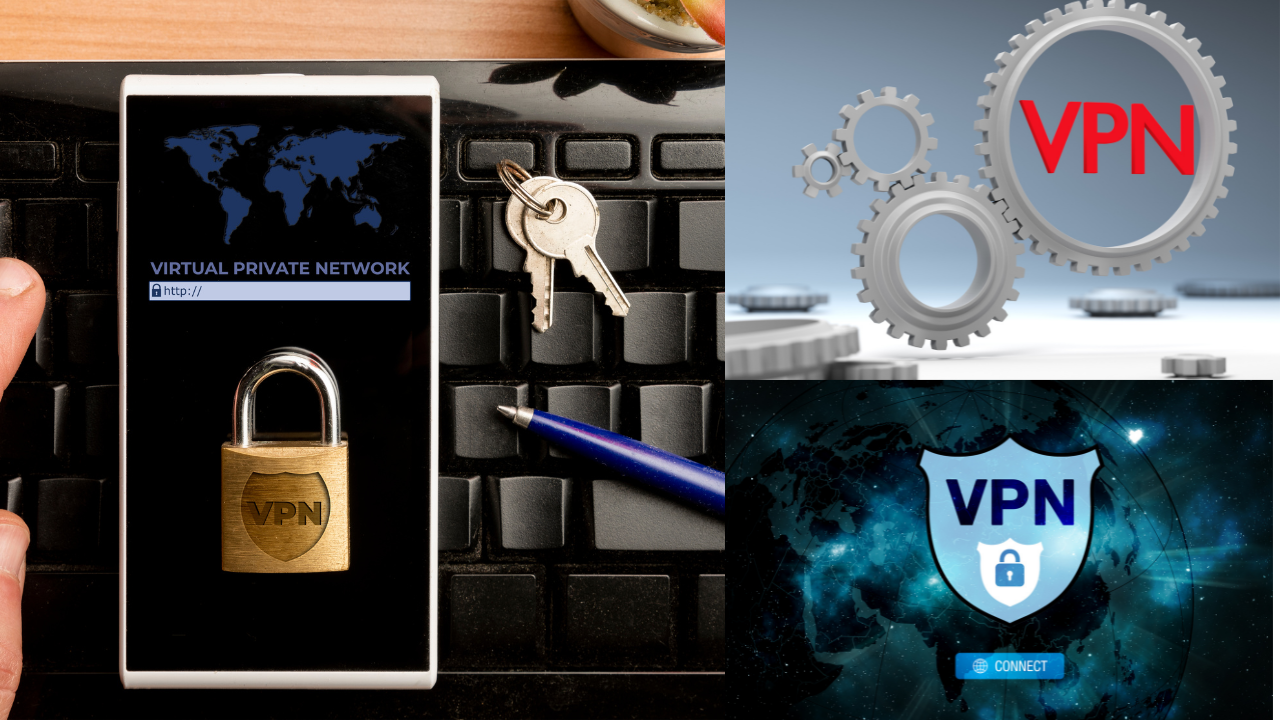Introduction
In today’s digital era, where internet security and privacy are paramount, understanding Virtual Private Networks (VPNs) is more important than ever. This comprehensive guide is designed to unravel the complexities of VPNs, providing you with essential insights into what VPNs are, why they are crucial for your online safety, and how to effectively use them. From exploring the fundamental aspects of VPN technology to addressing common myths and looking ahead at future trends, this blog post aims to equip you with the knowledge and tools to navigate the world of VPNs confidently. Whether you’re a novice internet user or a tech-savvy individual, this guide will help you understand the critical role VPNs play in protecting your online presence.
Table of Contents
1. What is a VPN?
A Virtual Private Network(VPN), commonly known as a VPN, is a technology that creates a safe and encrypted connection over a less secure network, such as the internet. It extends a private network across a public network, allowing users to send and receive data as if their computing devices were directly connected to the private network.
Understanding the VPN Basics
The primary function of a VPN is to ensure privacy and security by encrypting your internet connection. This encryption helps protect your data from unauthorized access when using public Wi-Fi networks, such as those in coffee shops, airports, or hotels. Essentially, a VPN creates a virtual encrypted tunnel between your device and a remote server operated by a VPN service. All your internet traffic is routed through this tunnel, ensuring your data is secure and your online activities are private.
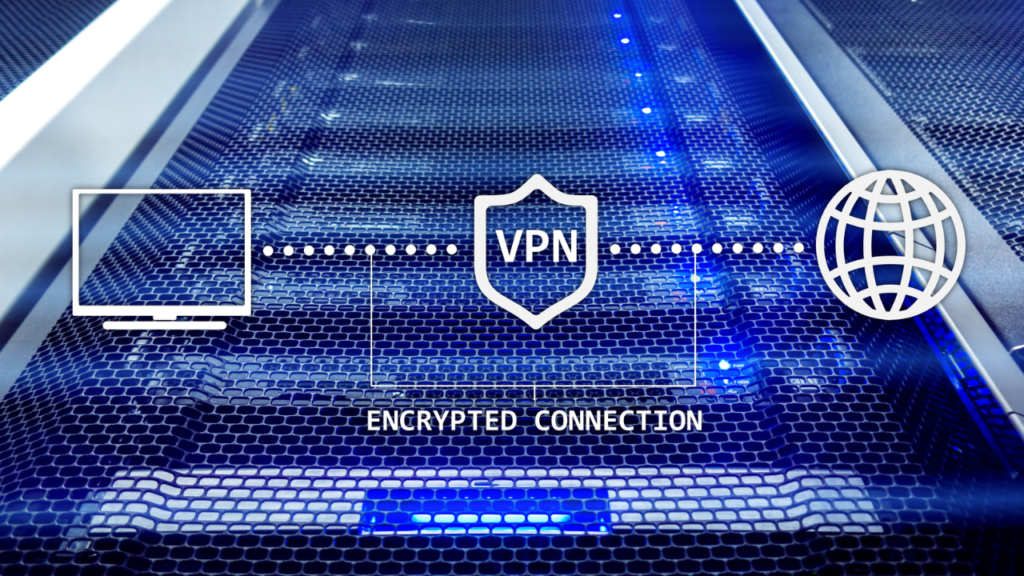
2. How Does a VPN Work?
When you connect to a Virtual Private Network(VPN), it assigns your network connection a temporary IP address, hiding your true IP address. This process not only secures your data but also anonymizes your online presence, making it harder for websites and third parties to track your online activities or determine your geographical location.
Benefits of Using a VPN
- Enhanced Security: A VPN encrypts your data, protecting it from cyber-criminals and eavesdroppers.
- Online Anonymity: It masks your IP address, allowing you to browse the internet without revealing your identity.
- Access to Geo-restricted Content: VPNs can bypass geographical restrictions, giving you access to content from different regions.
- Safe Public Wi-Fi Use: Using a VPN on public Wi-Fi networks adds a layer of security against potential threats.
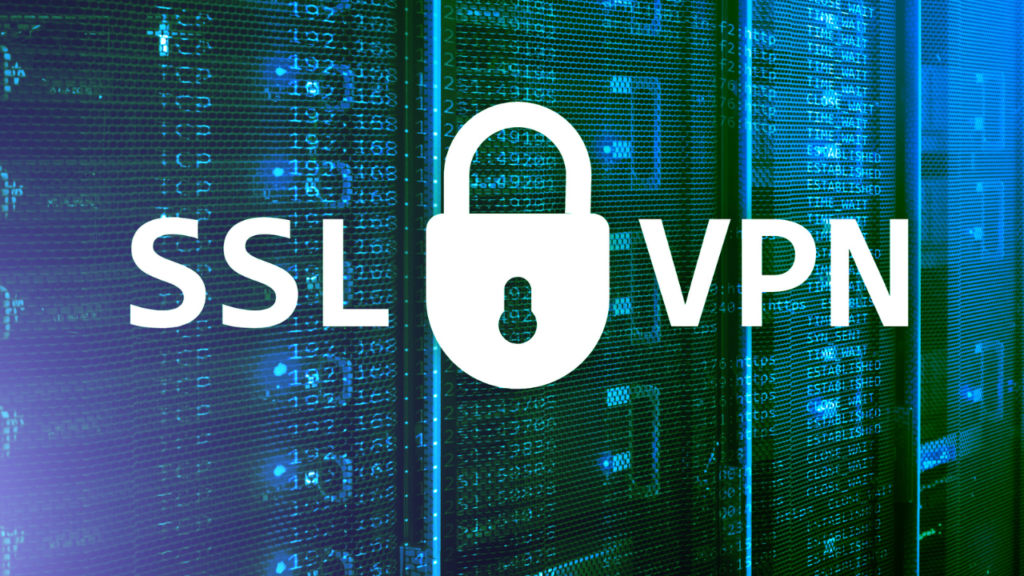
3. Why Do You Need a VPN?
In the digital age, where online threats are prevalent and data privacy is a major concern, a Virtual Private Network (VPN) serves as an essential tool for internet users. Here’s why you need a VPN:
Protecting Your Online Privacy
One of the foremost reasons to use a Virtual Private Network(VPN) is to protect your online privacy. Whenever you browse the internet without a VPN, your internet service provider (ISP), websites, and potential cyber-criminals can see your online activities. A VPN encrypts your internet connection, making your online actions virtually untraceable and keeping your sensitive data secure from prying eyes.
Enhancing Security on Public Wi-Fi
Public Wi-Fi networks, found in places like cafes, airports, and hotels, are notoriously insecure, making them hotspots for cyber-criminals. A VPN encrypts your internet traffic, safeguarding your data against hackers and identity thieves who exploit unsecured Wi-Fi networks to intercept personal information.

Bypassing Geo-Restrictions and Censorship
Many websites and services restrict access based on your geographical location. A VPN allows you to connect to servers in different countries, making it appear as if you are browsing from that location. This feature enables you to bypass geo-restrictions and censorship, accessing a wider range of content, including region-specific streaming services, news sites, and social media platforms.
Safe and Anonymous Torrenting
If you’re into torrenting, using a Virtual Private Network(VPN) is crucial. Without a VPN, your ISP can see and potentially throttle your torrenting activities. A VPN hides your torrenting from your ISP and keeps your identity anonymous from other peers in the torrent swarm.
Avoiding Bandwidth Throttling
ISPs sometimes throttle internet bandwidth when they detect high-data activities like streaming or gaming. A VPN prevents your ISP from seeing your internet activity, thus avoiding unjustified bandwidth throttling, ensuring a smoother online experience.
4. How to Choose the Right VPN
Selecting the right Virtual Private Network (VPN) is crucial for ensuring your online security and getting the most out of your internet experience. Here are key factors to consider when choosing a VPN:
Assessing Your Needs
Before diving into VPN options, define what you need a VPN for. Is it for securing your data on public Wi-Fi, accessing geo-restricted content, or ensuring anonymity while browsing? Your specific needs will influence the kind of VPN service that’s best for you.
Security Features
A VPN’s primary role is to secure your online activities. Look for features like strong encryption (AES-256), a no-logs policy, and a kill switch, which ensures your internet connection drops if the Virtual Private Network(VPN) connection fails, preventing data leaks.
Speed and Performance
VPN services can vary in speed. If you plan to use the VPN for streaming, gaming, or downloading large files, opt for a provider known for its high-speed connections to avoid frustrating lags or buffering.
Server Locations
The number and location of servers can impact your VPN experience. A wider selection of server locations means more options for geo-spoofing (appearing to be in a different country) and usually better speed, as you’re more likely to find a server close to your physical location.
User-Friendliness
If you’re new to VPNs, a user-friendly interface is essential. Look for a VPN with an intuitive, easy-to-navigate app for various devices and platforms.
Compatibility
Ensure the VPN is compatible with all your devices and operating systems. Some VPNs offer more comprehensive support for different platforms than others.
Pricing and Plans
Compare the pricing plans of different VPN services. While free VPNs are tempting, they often have limitations and security concerns. A paid VPN usually offers better security, features, and customer support. Also price is also determined by the value your will get from the VPN tool.

Customer Support
Reliable customer support is crucial, especially if you’re new to VPNs. Look for services with 24/7 customer support and multiple channels for assistance.
Read Reviews and Test
Read user reviews and expert opinions. Most reputable VPN providers offer a trial period or money-back guarantee, allowing you to test the service before committing.

5. Key Features to look for in a Virtual Private Network(VPN)
| Feature Category | Details |
| Security Protocols | Look for robust encryption protocols like OpenVPN, L2TP/IPsec, or IKEv2. |
| No-Logs Policy | Choose a VPN that does not keep logs of your online activities for maximum privacy. |
| Server Locations | A wide range of server locations is essential for bypassing geo-restrictions and achieving optimal speeds. |
| Speed and Bandwidth | Ensure the VPN offers high-speed connections and unlimited bandwidth. |
| Kill Switch | A feature that disconnects you from the internet if your VPN connection drops, to prevent data leaks. |
| Simultaneous Connections | Check how many devices can be connected to the VPN at the same time. |
| Ease of Use | The interface should be user-friendly and easy to navigate. |
| Customer Support | Look for 24/7 customer support, preferably with live chat options. |
| Price and Value | Consider the pricing plans and ensure it offers good value for the features provided. |
| Compatibility | The VPN should be compatible with multiple platforms and devices. |
6. Popular VPN Services/Tools: An Overview
In the realm of Virtual Private Networks (VPNs), several standout services offer exceptional security, speed, and features. Here’s an overview of some top VPN services that have garnered widespread acclaim:
| Image | VPN Name | Description |
|---|---|---|
| NordVPN | NordVPN is renowned for its robust security features. It offers AES-256 encryption, a strict no-logs policy, and Double VPN technology for an extra layer of protection. NordVPN also boasts a vast network of thousands of servers in many countries, ensuring high-speed and reliable connections. Ideal for streaming, it can unblock various geo-restricted content and offers dedicated P2P servers for torrenting. | |
 | Express VPN | ExpressVPN is highly praised for its speed and efficiency. It offers a wide range of server locations, strong encryption protocols, and is known for its ability to bypass tough geo-restrictions, including those on streaming services like Netflix. Its user-friendly interface makes it a favorite among both beginners and advanced users. |
 | Surfshark | Surfshark is a budget-friendly option without compromising on features. It provides unlimited simultaneous connections, a no-logs policy, and a MultiHop feature for connecting through multiple countries at once. Surfshark is also effective in accessing various streaming services and offers a clean, easy-to-use interface. |
 | CyberGhost | CyberGhost is recognized for its user-friendly approach and strong privacy features. It offers specialized servers for streaming and torrenting, and a wide range of servers across the globe. CyberGhost is also known for its transparent privacy policy and solid performance. |
 | Private Internet Access (PIA) | PIA offers a strong balance of privacy, performance, and price. It has a large server network and supports up to 10 simultaneous connections. While it may not be as fast as some of its competitors, it provides reliable service and a proven no-logs policy. |
 | Tunnel Bear | TunnelBear VPN is a user-friendly service known for its approachable design and ease of use, offering secure and private internet access. It provides strong encryption to help users maintain anonymity online and bypass geographical restrictions. |
 | VyprVPN | VyprVPN is a VPN service known for its strong privacy and security features, including proprietary Chameleon protocol to bypass restrictive networks and censorship. It offers high-speed servers worldwide, ensuring reliable and encrypted internet access for users seeking privacy and freedom online. |
 | PureVPN | PureVPN is a versatile VPN service that offers extensive server coverage across the globe, aiming to provide fast, secure, and anonymous internet access. It features robust encryption, a wide range of protocols, and additional security options like Internet Kill Switch and split tunneling for enhanced online privacy and security. |
 | IPVanish | IPVanish is a VPN service that stands out for its high-speed connections and a strong focus on user privacy and security, offering end-to-end encryption for all internet traffic. It boasts a large network of servers worldwide, providing users with the ability to bypass geo-restrictions and maintain anonymity online. |
 | Hotsport Shiled | Hotspot Shield is a popular VPN service known for its fast speeds and unique Catapult Hydra protocol, which enhances connection speeds while ensuring secure and private browsing. It offers users encrypted access to the internet, protecting personal data from hackers and enabling the bypassing of geographical restrictions and censorship. |
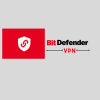 | Bitdefender | Bitdefender is a leading cybersecurity software that provides comprehensive protection against a wide range of online threats, including viruses, malware, ransomware, and phishing attacks. It offers advanced features like multi-layer ransomware protection, network threat prevention, and system optimization tools, ensuring robust security for both individual and enterprise users. |
7. How to Set Up and Use a VPN
Setting up and using a Virtual Private Network (VPN) is simpler than it might seem. Here’s a step-by-step guide to get you started:
Choosing a VPN Service
First, select a VPN service that suits your needs. Consider factors like security features, server locations, speed, and pricing. Popular choices include NordVPN, ExpressVPN, and Surfshark.
Signing Up
Once you’ve chosen a VPN, visit its website and sign up for an account. Most VPN services offer different subscription plans, so choose one that aligns with your usage needs and budget.
Downloading and Installing the VPN
After signing up, download the Virtual Private Network(VPN) software from the provider’s website or the app store for your device. Install the software by following the on-screen instructions. This process is typically straightforward and similar to installing any other software or app.
Logging In
Open the VPN application and log in using the credentials you created during the signup process.
Selecting a Server
Most VPN apps display a list of available server locations. Choose a server location based on your needs – for instance, if you want to access content only available in a specific country, select a server in that country.
Connecting to the VPN
After selecting a server, click the “Connect” button. Once connected, the VPN will encrypt your internet connection, and your real IP address will be replaced with one from the server’s location.
Verifying the Connection
To ensure that the VPN is working, you can check your IP address online. There should be a change in your IP address, reflecting the location of the VPN server you’re connected to.
Adjusting Settings (Optional)
Explore the VPN app’s settings to customize your experience. Options may include changing the security protocol, enabling a kill switch, or setting up the VPN to launch at startup.
Disconnecting from the VPN
When you’re done using the VPN, you can disconnect by simply clicking the “Disconnect” button in the app. Remember to disconnect when you no longer need the VPN connection.
8. Common Myths and Misconceptions About VPNs
Virtual Private Networks (VPNs) are surrounded by various myths and misconceptions. It’s important to dispel these myths to understand and use VPNs effectively. Understanding these common myths and misconceptions about VPNs is crucial for making informed decisions about your online privacy and security. A VPN is a valuable tool for protecting your digital life, and being aware of what it can and cannot do is key to utilizing it effectively.
Here are some common misunderstandings:
Myth 1: VPNs Provide Complete Anonymity
While VPNs enhance privacy by masking your IP address and encrypting your data, they don’t provide complete anonymity. Your VPN provider can still see your internet activity, and under certain legal circumstances, may be required to provide this information to authorities.
Myth 2: All VPNs Are the Same
Not all VPNs offer the same level of service. Factors like encryption strength, server network, logging policies, and additional security features can vary significantly. Free VPNs, in particular, might offer less security and can sometimes compromise your data privacy.
Myth 3: VPNs Slow Down Your Internet Speed Drastically
While it’s true that using a VPN can impact your internet speed due to the encryption process, the effect is often minimal with high-quality VPN services. In some cases, a VPN can even bypass ISP throttling, potentially improving your internet speed.
Myth 4: Using a VPN is Illegal
In most countries, using a VPN is perfectly legal. However, some countries with strict internet censorship laws have restrictions on VPN use. It’s important to be aware of the legal implications in your specific country.
Myth 5: You Don’t Need a VPN at Home
Even at home, a VPN can be beneficial. It secures your internet connection against potential intruders and helps protect your privacy from ISPs and advertisers who might track your internet usage.
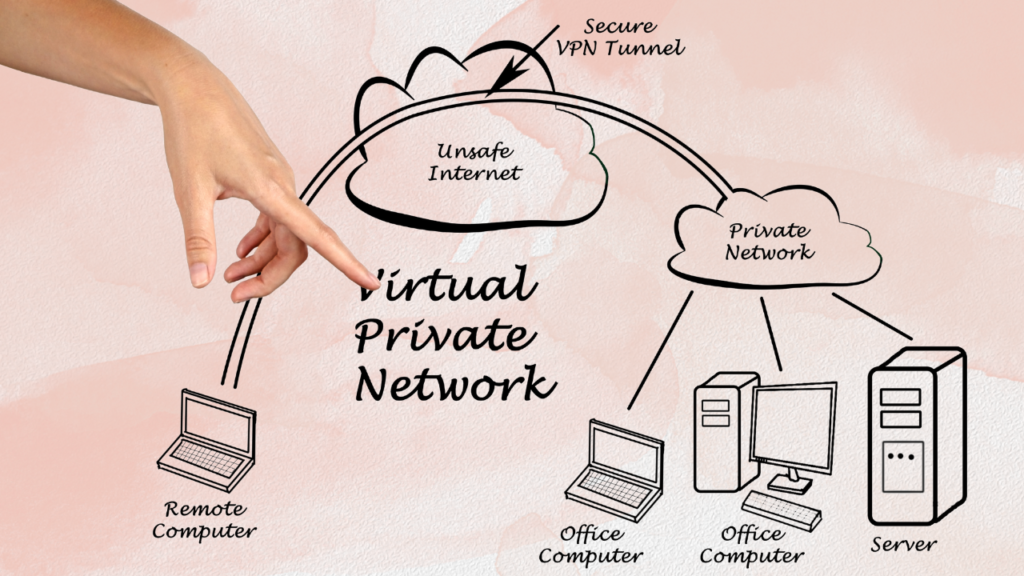
Myth 6: VPNs Are Just for Tech-Savvy People
Modern VPNs are designed for ease of use. With user-friendly interfaces and simple one-click connect options, they are accessible even to those with limited technical know-how.
Myth 7: VPNs Are Only for Hiding Illegal Activities
VPNs are legal tools used for a variety of legitimate reasons, including enhancing privacy, securing data, and accessing geo-restricted content. Their use is not limited to or indicative of illegal activities.
9. VPNs and Legal Considerations
When using a Virtual Private Network (VPN), it’s essential to understand the legal considerations involved. While VPNs are legal in most parts of the world, there are nuances and regulations that users should be aware of.
Legality of VPNs Around the World
In most countries, using a VPN is perfectly legal. It’s a legitimate tool for enhancing privacy and security online. However, some countries have specific laws and restrictions regarding VPN usage. For instance, countries like China, Russia, and Iran have stringent regulations on VPN use, often requiring approved VPN services or banning them altogether.
Using VPNs for Legal Purposes
It’s important to note that while using a VPN is legal, using it to conduct illegal activities is not. VPNs should be used responsibly. Engaging in activities such as hacking, cyber-stalking, downloading illegal content, or committing fraud with a VPN is still illegal and punishable under law.
VPNs in the Workplace and Academic Institutions
Some businesses and academic institutions have policies against the use of VPNs on their networks. These policies are typically in place to ensure network security and compliance with institutional regulations. Always check and adhere to your organization’s policies regarding VPN usage.

VPN Providers and Compliance with Law Enforcement
Most reputable VPN providers have a no-logs policy, meaning they do not keep records of your online activities. However, in certain legal situations, a VPN provider might be compelled to cooperate with law enforcement agencies. It’s important to understand a VPN provider’s logging policy before subscribing to their service.
The Importance of Choosing a Reputable VPN
Selecting a reputable VPN provider is crucial. Look for providers that are transparent about their policies, offer strong encryption, and have a proven track record of prioritizing user privacy and security.
10. The Future of VPN Technology
The landscape of Virtual Private Network (VPN) technology is continually evolving, adapting to new challenges and advancements in the digital world. Let’s explore what the future might hold for VPN technology:
Increased Adoption and Mainstream Use
As awareness about online privacy grows, more individuals and businesses are expected to adopt VPNs. This increased demand could lead to more user-friendly designs, making VPNs accessible to a wider audience.
Advancements in Encryption Technology
As cyber threats become more sophisticated, VPN providers are likely to adopt stronger encryption methods. The development of new encryption standards and protocols will enhance security, ensuring that VPNs remain a robust tool for protecting online privacy.

Integration with Internet of Things (IoT)
With the proliferation of IoT devices, securing these interconnected devices becomes crucial. Future VPNs might offer more comprehensive solutions for securing IoT networks, protecting not just computers and smartphones but all internet-connected devices.

Impact of Quantum Computing
The advent of quantum computing presents both challenges and opportunities for VPN technology. While quantum computers could potentially break current encryption methods, they also open the door for creating virtually unbreakable encryption, leading to even more secure VPN services.
Cloud-Based VPN Services
The shift towards cloud computing could see more VPNs becoming cloud-based. This transition might offer better scalability, performance, and ease of access, making VPNs more efficient and easier to manage, especially for businesses.
AI and Machine Learning Integration
The integration of Artificial Intelligence (AI) and machine learning could make VPNs smarter. AI could help in automatically selecting the best servers, detecting threats, and providing personalized security based on user behavior.
Policy and Regulatory Changes
As VPN usage becomes more widespread, we might see more regulations and policies shaping the use and operation of VPNs. This could impact how VPNs are used and marketed, especially in terms of privacy and data protection laws.
11. Conclusion
In this comprehensive exploration of Virtual Private Networks (VPNs), we’ve delved into various facets of VPN technology – from its basic definition to its complex legal considerations and future prospects. The journey through these topics underlines the significance of VPNs in our increasingly digital and interconnected world.
VPN is a powerful tool for ensuring your online privacy and security. It not only protects your personal information and browsing history from external threats but also provides the freedom to access the full expanse of the internet without geographical limitations. Whether you are a regular internet user, a frequent traveler, or someone concerned about online privacy, a VPN is an indispensable tool in your digital toolkit. VPNs are more than just tools for securing your internet connection; they are vital components in the quest for online privacy, security, and freedom.
As we’ve seen, choosing the right VPN service requires careful consideration of factors like security, speed, user-friendliness, and legal compliance. Moreover, debunking common myths and understanding the legal landscape around VPNs are crucial steps in utilizing these tools effectively and responsibly.
Looking ahead, the future of VPN technology promises even greater advancements. With the integration of newer technologies like AI, quantum computing, and the Internet of Things (IoT), VPNs are set to become more robust, intelligent, and integral to our online experiences.
In conclusion, the world of VPNs is dynamic and ever-evolving. As online privacy challenges grow and internet freedom becomes more critical, VPNs will continue to play an essential role in safeguarding our digital lives. Embracing VPN technology not only enhances your online security but also empowers you to navigate the digital world with greater confidence and freedom.
12. Call to Action
As we conclude this insightful journey into the world of Virtual Private Networks (VPNs), it’s clear that understanding and utilizing Virtual Private Network(VPN) is crucial in our increasingly digital lives and knowledge is just the first step. Now, it’s time to take action:
Start Protecting Your Online Presence: If you haven’t already, consider choosing a VPN service that aligns with your needs. Remember, the right VPN can significantly enhance your online security and privacy.
Stay Informed and Updated: The world of technology is ever-evolving, and so are the features and capabilities of VPNs. Keep yourself updated with the latest trends and updates in VPN technology to ensure you’re always one step ahead.
Share the Knowledge: If you found this guide helpful, share it with friends, family, or colleagues who might benefit from it. Educating others about the importance of online privacy and security is vital in this digital age.
Engage with Us: Have questions or insights about VPNs? Feel free to leave a comment below or contact us. Your feedback is invaluable, and we’re here to discuss and address any queries you might have.
Subscribe for More: For more content like this, don’t forget to subscribe to our newsletter. We regularly update our readers with informative content about cybersecurity, technology trends, and much more.
Taking these steps will not only help secure your digital footprint but also contribute to a safer and more private online environment for everyone. Embrace the power of VPNs and step into a more secure digital future today
13. Additional Resources
To further enhance your understanding and usage of Virtual Private Networks (VPNs), we’ve compiled a list of additional resources. These materials can provide deeper insights, practical advice, and updated information in the evolving landscape of VPN technology:
- VPN Guides and Tutorials:
- Look for comprehensive guides and tutorials that offer step-by-step instructions on setting up and using various VPNs. These can be especially helpful for beginners.
- Online Security Blogs and Forums:
- Engage with communities on cybersecurity forums and follow blogs dedicated to online privacy and security. They are great sources for the latest news, tips, and discussions about VPNs and internet security.
- Tech News Websites:
- Stay informed about the latest developments in VPN technologies and cybersecurity trends by following reputable tech news websites.
- VPN Reviews and Comparisons:
- Websites that provide detailed reviews and comparisons of different VPN services can help you make informed decisions when choosing a VPN.
- YouTube Channels:
- There are numerous tech-focused YouTube channels that regularly post content about VPNs, including reviews, how-to guides, and discussions on internet security.
- Podcasts on Internet Privacy:
- Listening to podcasts discussing internet privacy, digital rights, and VPN usage can be both informative and engaging, especially for auditory learners.
14. Comments Section
We Value Your Thoughts and Experiences!
Our journey through the intricacies of Virtual Private Networks (VPNs) wouldn’t be complete without your input. The comments section below is your space to share thoughts, experiences, and questions about VPNs. Whether you’re a seasoned VPN user or just starting to explore the world of online privacy, your insights are invaluable to our blog. Share your experiences with different VPN services, and let us know how they’ve impacted your online activities.
